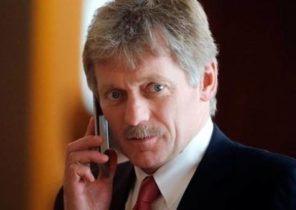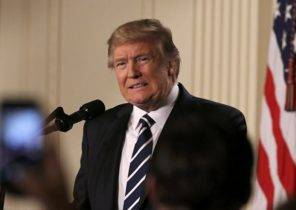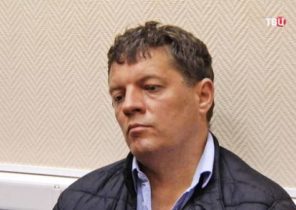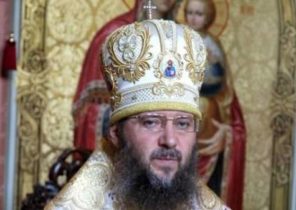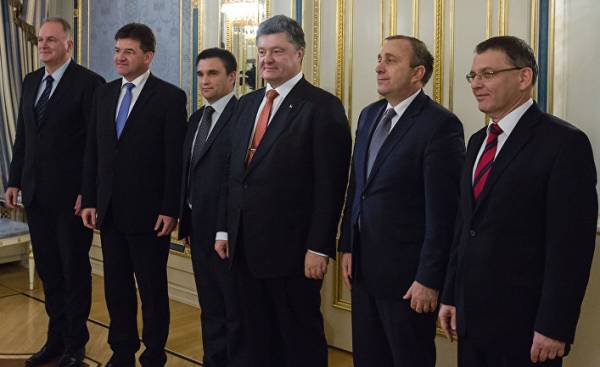
It is extremely difficult to find a political topic that would share the States of the Visegrad group more than the attitude to Putin’s regime. The Czech Republic is stepping up efforts to combat misinformation, while Viktor Orban praises the Russian model of illiberal democracy.
In a period when relations between NATO and the Russian Federation was the most intense cold since the end of the cold war and the Visegrad group agreed to send 150 soldiers to the Russian border, the approaches of individual Visegrad four countries to the Kremlin greatly.
Poland, which traditionally holds the same anti-Russian stance, as well as the Baltic States, considers the geopolitical ambitions of Vladimir Putin as a threat to its existence. Slovak and Hungarian leaders, in turn, is in Moscow’s attitude is much more friendly and pragmatic approach. Rather, the Hungarian government did not hide behind a mask of pragmatism his Pro-Russian sentiments. As for the Czech Republic, there is an openly Pro-Russian views are supported by President miloš Zeman.
Despite the fact that after the beginning of the Ukrainian crisis, the Visegrad countries follow the main lines of EU policy, i.e. support sanctions and defend the territorial integrity of Ukraine, in those countries you can still find significant differences.
The following joint article the reader can read an overview describing the attitude of the Visegrad four countries to Russia and to the Ukrainian crisis.
The Czechs are struggling with propaganda
The Czech Republic has not been spared the deterioration of relations with Russia in recent years. The annexation of the Crimea, violating international law, and the ongoing war in the East of Ukraine are the main reasons why the Czech government from the beginning supported the sanctions imposed by the European Union against Russia. And this position of the Czech Republic remains unchanged.
However, one part of the Executive branch does not share this point of view. President miloš Zeman has repeated several times that the introduction of economic sanctions against Moscow harmful to our agriculture and industry. Last year Zeman even said that “sanctions is a manifestation of powerlessness.”
His view supports the President of the Union of industry and transport of the Czech Republic Jaroslav Hanák: “We must take the initiative and raise the issue of the abolition of anti-Russian sanctions, primarily at the level of the Visegrad four,” he said.
Economic sanctions against Moscow, of course, had a negative impact on trade between the Czech Republic and Russia. In 2012, the volume of trade turnover reached 270 million kroons (10 million euros), and in 2015 — a total of 180 million kroons (6.6 million euros). On the other hand, it should be emphasized that in 2016 the share of Czech exports to Russia in total exports of the Czech Republic was 1.9%.
The interests of the Czech businesses operating in the Russian market, it is clear, however, despite the business interests and the statements Zeman, the Czech government does not change. And, according to many experts, this is correct. “The policy of the government of the CR I think, in General, correct. However, it would be better if the government had explained its position to the public,” says Michael Romantsov, a political geographer from the faculty of social Sciences, Charles University in Prague.
According to Romantsova, in the framework of the Visegrad four is the most important to the position of its members were United. “In Moscow it is necessary to show the unity, consisting in the rejection of contemporary Russian politics, which is dangerous for any small country, especially for countries in the area of the former Russian and Soviet influence,” — said political geographer.
But a member of the European Parliament jaromír štětina (TOP 09 party) more skeptical: “the Czech policy towards the Russian aggression too careful. Pragmatism outweighs all the efforts made for the protection of human rights and international norms. Czech political leaders need to demand tougher sanctions”, — said štětina.
In his opinion, the standard for us should be Polish attitude to the Kremlin. “The Visegrad countries should follow the example of Poland, to understand the risks to their own safety and to cooperate more closely with NATO. I would welcome the presence of NATO military forces on the territory of the Czech Republic,” said jaromír štětina.
Misinformation has a big impact
But it’s not only about the Crimea, the war in Ukraine and economic sanctions. Recently, we, the inhabitants of the Czech Republic, feel a growing need to deal with the information war waged by Russia not only it. From public opinion polls show that most Czechs believe unverified and inaccurate reports. Thus, the actions taken by the Czech government in this respect, justified.
For example, from a survey conducted by the STEM Agency in June 2016, it follows that half of Czechs believe in migration from Syria to blame the United States. And 25% trust the so-called alternative media, are disinformation sites. Almost 40% of Czechs believes that Washington is to blame in the Ukrainian crisis.
In this regard, the Ministry of internal Affairs has created the Center on terrorism and hybrid threats, which should deal in particular with disinformation and propaganda. This is the first project of its kind in the country-member of the European Union.
A similar project called East StratCom Tak Force, created to combat Russian disinformation campaign is already running at EU level. One of his employees is a Czech journalist Jakub kalens’ke. But, according to him, the best method of combating Russian influence is the creation of centres, like Prague, in all EU countries. To rely entirely on a Central authority is not worth it.
The existence of hybrid threats emanating from Moscow, confirmed Barbora Knapova from the Prague Institute of research in the field of security. “Often in this context, talking about the spread of misinformation on the so-called alternative sites. But the spectrum of Russia’s actions to influence public opinion, much wider. For example, to build links with some political parties and supported by extremist movements and groups from the right and left sides of the political spectrum, including paramilitaries. Moreover, there are financial and economic instruments,” notes Knappova.
And here on the scene again, out of miloš Zeman, who sharply criticized the creation of the Center for terrorism and hybrid threats, stressing that no one has a monopoly on the truth. In a recent interview with Czech television Zeman also expressed their doubts about the dangers of cyber attacks, saying that “chatter about a variety of cyber attacks came into fashion”. And yet the Czech government is still not influenced by Zeman.
Poland: the relationship reached zero
From Warsaw to Moscow not had the best relationship. Important but not the only, cause is common and extremely complicated history of the two countries, including the recent cold war period. However, there are other reasons. Given the General deterioration of relations between the West and Russia in recent times that Warsaw had misgivings because of the growing number of Russian military exercises.
“Today, workers are only supported bilateral relations. All because of the Russian policy in Ukraine and for relations between the Kremlin and Western countries. And this one Poland can not cope,” — said the head of the Warsaw division of the European Council on foreign relations Peter bouras.
Poland has always been very convincing in terms of condemnation of the Russian annexation of Crimea and violations of international law by Russia. This approach resulted in support of Poland’s powerful campaign to defend the anti-Russian sanctions in the international arena, including the European Union.
Including because of this, the relations are far from friendly, open and Pro-Russian opinions is extremely difficult to find support among the Polish political elite. However, this does not mean that Poland has avoided many of the Pro-Russian disinformation campaigns.
“Given our common history, it may seem that we are more resistant to all kinds of misinformation campaigns, but in fact we are also vulnerable to them. And although we have Russia may not use the explicitly Pro-Russian politicians, it succeeds by attacking our weak spots,” said Marta Kowalska, a Polish researcher organizations Pułaski Foundation.
Cool you can also call the relations in the economic sphere. Russian gas and, to a lesser extent Russian oil are still a significant component of the Polish energy sector. In addition, Russia was a very important export destination for many Polish producers working primarily in agriculture.
But in recent years the situation has changed. Despite the fact that Poland remains one of the 12 most important Russian partners, Polish exports to Russia and Russian imports in Poland decreased year on year. This concerns the Polish exports of engineering products that has on the Polish economy a negative impact. In addition, due to sanctions on Russia significantly reduced the exports of agricultural products.
To find a common language with Ukraine difficult
Polish-Ukrainian relations, despite the support of Warsaw provided to Ukraine from the beginning of the events on the Maidan and negotiations on Association with the EU, after the change of government in 2015 is somewhat complicated. Officially, the Polish government, according to Prime Minister Beata Szydlo, “believes a free and independent Ukraine is a guarantee of Polish security,” and to achieve this objective, the Warsaw wants to create bilateral projects and cooperation with Kiev. However, the situation is not as straightforward as it might seem.
Poland and Ukraine difficult to find a common language. This is due, primarily, with a complex history. To change the perception of these countries to each other often interfere with political memories. For example, Ukrainian nationalists continued to insist that Ukrainians glorify their heroes, which is Warsaw, however, considers criminals. On the other hand, the Polish Sejm continues to regard the Ukrainian resistance in 1943 — 1945 years as an act of genocide.
The Russian disinformation campaign relations does not improve
That is why the poles are so receptive to Russian disinformation campaign. “Moscow wants even more harm Polish-Ukrainian relations and therefore often concentrates on the history of these two countries,” added Kowalski.
Lucas Yassin of the Polish Institute of international Affairs said that “after the revolution on the Maidan occupied Poland towards Ukraine rather pragmatic position. For Ukraine, relations with Poland are so important, how useful they can be. This explains the current very cold attitude of Kiev to Warsaw. Because of the tension between the Polish conservative party and Brussels Ukrainians understand that Poland can no longer be a strong advocate of Ukrainian interests at the EU level”.
The growing tension between Poland and Ukraine, will continue in the coming months, which will increase the likelihood of diplomatic conflict. But Kowalski believes that Russian-Polish relations will continue to remain de facto cool, and that “the prospects of improvement in the near future”.
Slovakia varies, but sanctions support
Pro-Russian sentiment in Slovakia originated in the mid 19th century. It seems that the role they play in contemporary Slovak politics, because the historical experience of Slovakia differs from its neighbors. During the Bratislava summit in September last year, Prime Minister of Slovakia Robert fico said “Ukraine is making to implementation of the Minsk agreements is smaller than Russia”, thereby causing great resonance.
In addition, fico has also questioned the meaning of anti-Russian sanctions. And yet at the EU level in this matter, Slovakia joined the common position of the Union. The opinion of the President of Slovakia Andrej Kiska on the subject is significantly different from the position of Prime Minister fico. This situation remains virtually unchanged since the time of the Russian annexation of Crimea.
Alexander Duleba of the Slovak Association of foreign policy recalls that the Prime Minister of Slovakia was able to find a common language with Ukraine regarding rejection of the project “Nord stream 2”, but nevertheless took part in the celebrations in honor of the anniversary of the end of world war II in Moscow. President Kiska, on the contrary, has repeatedly supported a unified EU position and defended the need to continue sanctions. An intermediate position was taken by the Minister of foreign Affairs Miroslav lajčák.
Duleba also notes that in fact it was Slovakia has enabled Ukraine to stop importing Russian gas. “This confirms the importance of Slovakia for energy security of Ukraine. Therefore, the actions of Slovakia should be regarded as clear support, especially in the context of confrontation with Russia”, — said Duleba.
Society is divided
The article, prepared with the financial support of the Foundation Heinrich Böll Foundation and published in March 2016, the results of the poll, which was conducted by the Institute for social research (IVO). One of the authors of this collective Visegrad publications Gigori meseznikov, said: “We consider the Russian-Ukrainian conflict as a test for our society, our foreign policy and politicians.”
Then Slovakia was the only Visegrad country where citizens trust Russia more than the US (33% vs. 23%). “It can be argued that the Slovak community traditionally has for Russia’s greater sympathy than the neighbors of Slovakia. The position of Slovak public of the inherent ambivalence and emphasis on self-pragmatic short-term interests. Value assessment with the long-term prospects sidelined,” wrote the publication meseznikov and Olga Gyarfasova.
After one year, the view that it would be better to abandon anti-Russian sanctions, we hear more and more clearly — even from the lips of Prime Minister fico of Slovakia, as stated meseznikov server EurActiv.sk. But if Russia decides to attack Ukraine, the public is likely to side with Kiev. However, most importantly, how the situation will include senior policymakers, and how the conflict will inform the media.
New group to combat propaganda?
In Slovakia, as in other Visegrad four countries, there are dozens of media, to disseminate Russian propaganda. The expert from the Slovak Institute of political security (SSPI) Jaroslav Nagy involved in this issue for more than three years. During this time he learned that even in the comments section and discussions on different information sites are frequently published opinion ordered and paid for from abroad, and it is likely that money on such work on the Internet come from Russia. Two years ago this information was confirmed by Minister of interior Robert Kalinak, saying that in Slovakia there are “information channels,” which tend to undermine the credibility of Slovakia to Euro-Atlantic structures.
The press Secretary of the Ministry of internal Affairs Mihaela Paulenoff said that the theme of a hybrid war will be discussed in the new edition of the Slovak security strategy. However Polenova not told whether the Ministry is planning to create a specialized body which will be engaged in the struggle against disinformation, as was done in the Czech Republic.
Polenova added that for “specific elements targeted by Russian propaganda, and which are associated with hostility to the EU and NATO”, the watch specialists of the National centre for security and intelligence. There are representatives of the main state security agencies. Press Secretary of the Ministry of internal Affairs of Slovakia also stated that to overcome the risks associated with the dissemination of extremist propaganda in cyberspace, have created a project called EMICVEC (Effective Monitoring, Investigation and Countering of Violent Extremism in Cyberspace).
Hungary wants to be a Bastion of change in the European-Russian relations
Since the crisis in Ukraine Vladimir Putin and Victor Orban has already met three times within two years. The last of these meetings took place on the second of February 2017, when the Russian President visited Budapest. The frequency and nature of these meetings with Putin Orban not to compare with other European leaders, and it suggests that the Hungarian government took the attitude of the Russian government a special position.
“The basis of these relations there is no mutual trust. In 1988 and 2009 Viktor Orban was one of the most vocal opponents of Russia. And Moscow about it have not forgotten,” — said the expert on Russia and Professor at the Catholic University of Peter Pazmany Andras RAC.
But the former anti-Russian stance Orban disappeared almost immediately after his meeting with Putin in 2009. What happened during the meeting remains a mystery. Rat is sure that Russian-Hungarian relations forming asymmetrical system based on short-term interests. So, the aim of the Hungarian government is to provide cheap energy supplies, and this adds Orban political points. The goal of the Kremlin is the lifting of EU sanctions.
Pragmatism, based on the Hungarian energy dependence on Russia, has always been a decisive factor in the creation of the government’s strategy of cooperation with Moscow. And one of the most important points of the modern Russian-Hungarian relations is partly a highly secret project of the Paks nuclear power plant, which will be financed by Russian loans. Ensuring a supply of cheap gas for a long period helped Orban’s re-election in 2014.
“I would treat Hungary as part of the Russian sphere of influence, as well as the state in which Russia wants to invest. But Putin expects something in return,” — says Andras Gyorgy, chief researcher of the economic Institute.
The Russian aggression? There is nothing to fear…
Point of view Budapest is very different from the rather radical positions of Poland and the Baltic States. The crisis in Ukraine, Hungary is not regarded as an indicator that other countries are under threat. During a joint press conference with Putin Viktor Orban went so far that he began to praise the successes of the Hungarian-Russian economic relations, which manages to maintain even in the period when the West of the European continent rampant anti-Russian sentiment. Such position of the Western States Orban called the “fashionable anti-Russian policy.”
Speaking about the Ukrainian crisis, Orban underlined the importance of implementing the Minsk agreements, thereby virtually relativelayout Russian aggression and at the same time revealing the official position of the government, which supports Ukrainian territorial sovereignty.
“The position of the Hungarian government, not just underlining the importance of the Minsk 2, completely satisfied Moscow. Indeed, in these agreements Russia does not act as a participating party, but their subject matter is not annexation of the Crimea. Therefore, the Minsk agreement cannot be the basis for a future settlement of the situation in Ukraine”, — said the expert on Russia, Zoltan S. Biro.
The Cabinet of Orban believes that the role of Hungary is to become a bulwark reboot in European-Russian relations. However, the Hungarian authorities have repeatedly noted that we should abandon the EU sanctions. This prompted the Russian propaganda channel Sputnik to call Hungary “the battering RAM” of the Kremlin. Representatives of the party “fides” argue that because of the sanctions, Hungary suffered great economic losses.
“The policy of sanctions affect not only the Russian economy but also the economies of the countries of the former Soviet republics, which have close ties with modern Russia, which in turn has negative consequences for Hungary. The damage is estimated at 6.7 billion dollars, given the decline in exports of goods and services,” said Deputy Secretary of state for relations with the countries of East Zsolt Chutora.
The government recognizes that these data are not based on actual figures for 2013, and forecast the intended economic activity in 2014 -2016 years in the absence of sanctions. Zoltan S. Biro convinced that these unrealistic data are presented in order to have a pretext for criticism of the sanctions policy.
Russian illiberal democracy — our sample
However, almost regular Russian-Hungarian summits dedicated to noneconomic issues. In 2014, Orban said the success of the Russian illiberal model of government and, it seems, he follows the Russian example, especially in regard to restrictions of media freedom and of actions directed against civil society organizations that allegedly “seeking to overthrow the government” and are “foreign agents”.
In addition, the rhetoric of the Hungarian government never refers to the information war because it is perceived as part of the Russian struggle. This position, if you compare with other countries in the same region, is very specific, but it continues to exist, despite the fact that the Ministry of foreign Affairs and trade has published a report that the Russian propaganda machine is using Hungary as a tool to fight Western values and the EU.
Proof of the growing political influence may be the fact that Russian influence in Hungary is not enough investigated, even in cases where the threat is Hungarian and regional security because of the intervention of Russian special services. Example — history with the radical right-wing paramilitary organization that is associated with the “Russian diplomats”. Even in this case, the Hungarian government has not taken any steps to prove or disprove the alleged Association of the grouping with the Kremlin. And it is unlikely, given the current relationship, such steps be taken in the future.
The mood of the top political leadership has already spread and in the Hungarian society: only 32% of Hungarians said in a survey of public opinion that Hungary should be part of the West. On the other hand, citizens who are guided solely by the East, not so much (only 6%). 50% of respondents said that he sees a place his people between West and East, at least in terms of geopolitics and culture.
